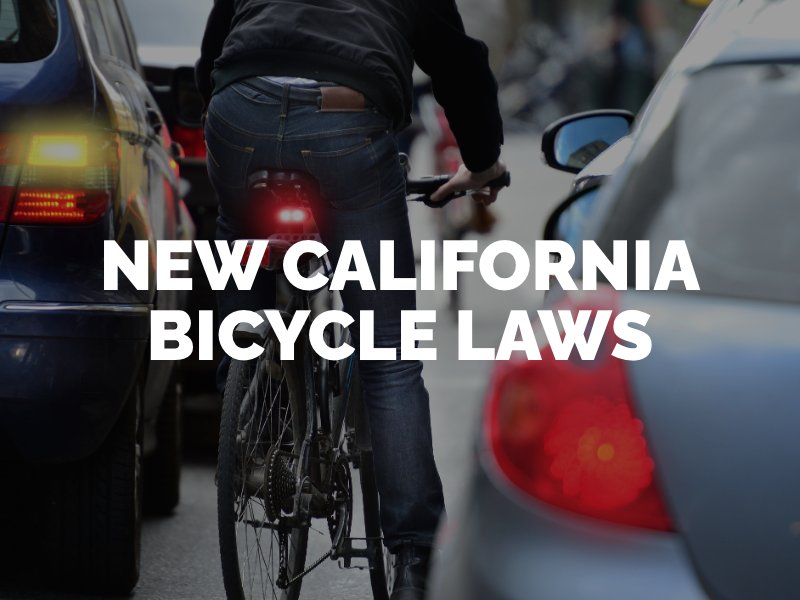New California Law Changes How Cars Overtake Cyclists
Bicycle accidents are a frequent problem in California and all 50 states. According to the California Office of Traffic Safety (OTS), 125 cyclists in the state lost their lives in traffic accidents in 2021 alone. In an effort to reduce the number of bicycle accidents, California lawmakers passed new laws that change the way bicyclists and motor vehicle drivers share the road.

Move-Over Law When Passing Bicyclists
As of January 1, 2023, motor vehicle drivers in California must move over one lane when passing bicyclists, instead of only keeping a distance of three feet. This is the new law under Assembly Bill 1909, also known as the OmniBike Bill, which was signed by Governor Gavin Newsom in September 2022. This new law changes California’s Vehicle Code with four modifications, one of which is a new move-over rule.
According to car accident lawyers in Los Angeles, previous state law in California required motor vehicle drivers to provide bicyclists with at least three feet of distance when passing. However, the new law replaces the three-foot rule with one that requires even more space. As of 2023, drivers must move one lane over when passing a bicyclist when available, the same as they would to pass a passenger car. Breaking this law can result in a fine of $238 up to $982, if the infraction causes serious injuries.
If an open lane is not available to allow a motor vehicle driver to move over to pass a bicyclist, the driver must slow down and wait until it is safe to pass the cyclist. This means until at least three feet of space is available between the vehicle and the bike. According to a spokesperson for the OTS, Timothy Weisberg, this new move-over law will reduce conflict points between bicyclists and motorists and decrease the risk of near misses or crashes.
Other Modifications to California’s Existing Bike Laws
The OmniBike Bill also made other safety changes to California’s existing bicycle laws. Electric bicycles, or e-bikes, are now allowed to ride in most bicycle lanes and bicycle paths in California. E-bikes were previously banned from utilizing traditional bike lanes; now, they can use bicycle lanes to stay out of motor vehicle traffic. However, communities are still permitted to prohibit the use of electric bikes on hiking and equestrian trails.
In addition, bicyclists are permitted to cross the road at intersections when pedestrian “Walk” signals appear, if this phase differs from a green light that is controlling motor vehicle traffic. If pedestrians can enter the intersection, so can bicyclists under this new rule. Finally, there are no more city ordinances in effect that require bicycle licensing or registration. Prior to the passing of the OmniBike Bill, some cities in California still required people to register their bicycles and get licenses. However, this is no longer the case.
Who Is Responsible for a Bicycle Accident That Occurs While Passing?
In most cases, a motor vehicle driver will be held liable, or legally responsible, for a bicycle accident in California that occurs while passing a bike. This is because motorists have a responsibility to pass safely and in accordance with the state’s passing laws – including the new requirement to move one lane over, whenever possible. Failing to adhere to all applicable roadway rules and traffic laws when passing a bicycle could place liability on the driver who violated the law.
If you or a loved one has been injured in a bicycle accident in California due to a driver who attempted to pass the bike too closely, contact an attorney at Rose, Klein & Marias, LLP to request a free case evaluation. We can help you protect your rights as you go up against the driver’s insurance company to prove a violation of one or more of California’s new bicycle laws.
